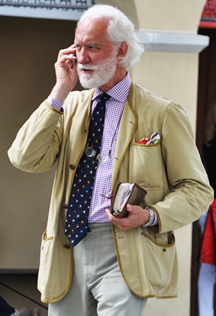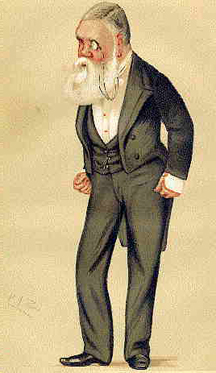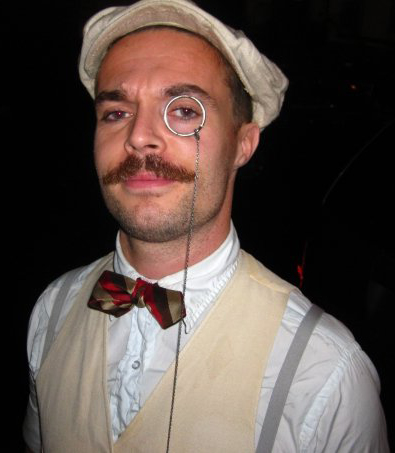CIA Makes Science Fiction Unexciting Author Talks! First-Ever Interview!
In the new issue of the zine series The CIA Makes Science Fiction Unexciting, author Abner Smith looks at the life, death, and legacy of Lee Harvey Oswald. Throughout the course of the zine’s 10 year run, Smith has declined interviews about his work. Here he talks to us about the history of the zine series, his own reading list, and the man himself, Oswald.
Check out issue six of The CIA Makes Science Fiction Unexciting right here.
Q: Since this is your first time being interviewed about the series, how did zine series start and why did you originally decide to do it?
A: Over ten years ago I was browsing a used bookstore in Minneapolis that no longer exists. Combing various books about politics and history I decided that many of the texts about the CIA and covert activities were both retailing for over $25 and painfully out-of-date. And I half-heartedly thought about writing about such topics. And I realized that I could write zines on various topics that I could churn out relatively quickly.
Within a year I had written the first issue—about the government’s involvement in the assassination of Martin Luther King, Jr. It happened to come out just before William Pepper’s book that revealed a lot of new facts about the case and our tours coincided in 2002.
Aside from my interest in the topics of the U.S.’s domestic covert ops, I had found many zines of that era to be self-indulgent and relying more on enthusiasm than merit or topic, and that the writing was designed more for the author than for the reader. There was a youthfulness that I didn’t relate to. And I wanted to show the “scene” that zines had been and could truly be about any topic they could passionately write about.
And that aspect was not lost on people. I received a lot of mail—especially in the early years—that it was encouraging to read a zine that was not a memoir or about a punk tour or hitchhiking trip. And many other people wrote to tell me that it encouraged them to write zines about their own off-beat topics.
I found the writing to be very difficult and unfulfilling at first but I feel like with this current issue I have finally found my own and I now understand nonfiction writing to be more than a rote recitation of facts. I read William Zinser’s On Writing Well between the 5th and 6th issues and I found it to capture my theory of self-editing perfectly and in words. His book is so good that I forgive his Christianity and how it sneaks in awkwardly.

(above, Abner Smith today.)
Q: One thing I got from reading the whole series is, “Wow, this guy must have a crazy-different reading list than most of my friends/most zinesters.” What are some of the books you’ve read recently that might connect to the zine’s vibe…
A: Other than perhaps John Marr, I probably have a very different reading list than most zine writers. I read hungrily and incessantly and most of the things that I’ve consumed lately that haven’t been related to Oswald are Hitler’s Secret Bankers, Covert Action: The Roots of Terrorism, The CIA’s Black Ops, The Secret History of the CIA, The CIA in Guatamala, Whiteout: The CIA, Drugs, and The Press.
Conspiracy theorists form a somewhat cohesive social community just like zinesters do. And being plugged into that really helps me stay aware of new or interesting books. And oddly enough, Amazon’s search engine is very helpful for finding related books on a topic and purchasing them elsewhere—like my neighborhood bookstore.
I’m hesitantly thinking that issue seven will be about the CIA’s manufacture and distribution of crack-cocaine. And I’m still uneasy with the fact that I’ll eventually have to handle Robert Kennedy’s assassination, MK Ultra, and the validity of where those two incidents might intersect.

(Above, Abner Smith, artist’s portrait.)
Q: Why Oswald in 2011? Tell us how the man’s life and death relates to, as the kids say, “How we’re livin’ now”?
A: It would be classy to say that Oswald’s story mirrors the current Joint Terrorism Task Force or post-9/11 security paranoia but the truth is that I haven’t seen a story as tragic or hilarious as Oswald’s before or after so it’s a sick fascination with an off-kilter individual who was able to get all of the attention he desired. And after ten years of research I decided I finally had enough good sources on his life to tell his story. I hope no one now is living like Oswald—he was a monster, a bad shot, and a terrible date.

(Above, Abner Smith, 1967)
Q: Throughout the course of your research on the man did you get to like him? You say he was a monster and a bad shot and a terrible date but in the text I feel a certain (subtle) sympathy. Did researching Oswald humanize him for you?
A: Oswald represents the humanity in everyone—our selfishness, our self-hatred, our insecurities, our yearning for fame, our willingness to be important. I don’t “like” him or want to be him, but I see a composite archetype of the uglier bits of everyone in him. He’s not a villain per se, but he’s troubled and not reacting well. And I think it’s important not to demonize certain people when they really aren’t that different from the people we talk to everyday, it’s just a lot more obvious. And I can see why even his widow and his children think of his positive traits first and don’t see him as a monster—and want to see him as a hero. Oswald does a good job of showing us how complex everyone’s character is and how perception paints those pictures.
Q: Which is a lot less reductive than most portrayals have been. How do you think Oliver Stone did with his version (JFK, 1991) of Oswald’s character?
A: Oliver Stone was setting out to prove a government conspiracy through what is essentially a propaganda film—and an effective one. But that makes Oswald’s character an afterthought, or at least secondary. It’s been fifteen years since I’ve seen the movie but I feel like it doesn’t really capture the depth or complexity of how I view Oswald.
Q: Do you think Stone’s film had any impact on the greater population’s opinion of the actual events?
A: Yes, most definitely it did. I think it was the first time in 25 years that the population was re-thinking these events and people who weren’t alive when the assassination happened were calling their history textbook into questioning. The film was also a very significant factor in demanding the FBI files on the assassination and Oswald.
Q: In your opinion, did Lee Harvey Oswald kill President Kennedy?
A: I’ve been researching this case intensively for the past ten years and in the beginning I was a bit tired of the conspiracy theory and had come full circle to believe that Oswald had likely had some major role in killing Kennedy, though was probably not working alone. There’s a giant volume of information and context in this case. And the more information that I came across from declassified files, the more evident it becomes that there was a very concerted effort on the part of our government to paint Oswald as the lone assassin. And the deeper you get into it, there’s high levels of corruption in that government and obvious links, resources, and motives far stronger than Oswald’s. I don’t think it’s possible that Oswald had more than a patsy role in Kennedy’s assassination.
Q: If not Oswald, then who killed Kennedy?
A: It’s difficult even to speculate about events from nearly 40 years ago—especially when all documents are still in various states of redacted and still not entirely declassified. But it’s clear that from the evidence we do have that Guy Bannister and David Ferrie were involved. Ferrie is a particularly sinister character who gave up a little more of the story when he protested to Jim Garrison that bringing attention on him would surely result in his murder—and it did. Other people who were aware of the details disappeared mysteriously. Read more here. When Oswald was arrested his wallet contained David Ferrie’s library card. Ferrie claimed repeatedly that they had never met—until photos were declassified showing them talking on multiple occasions.

(Above, Abner Smith, 1953)
Q: Do you think we’ll ever know for sure?
A: It’s been too long.